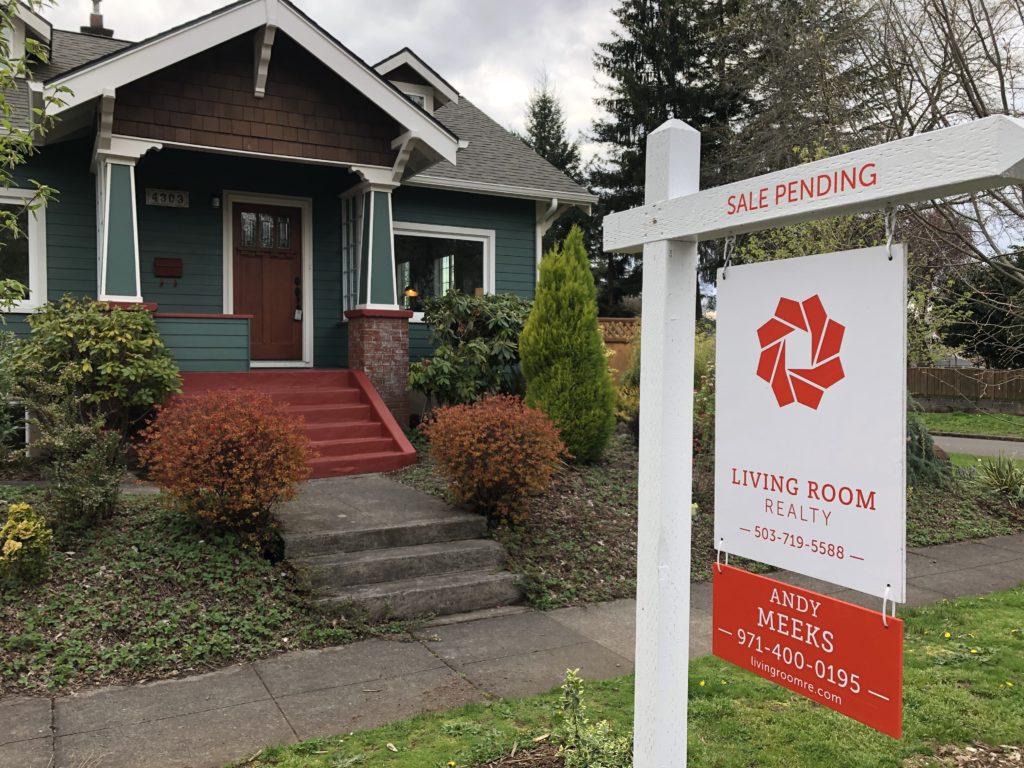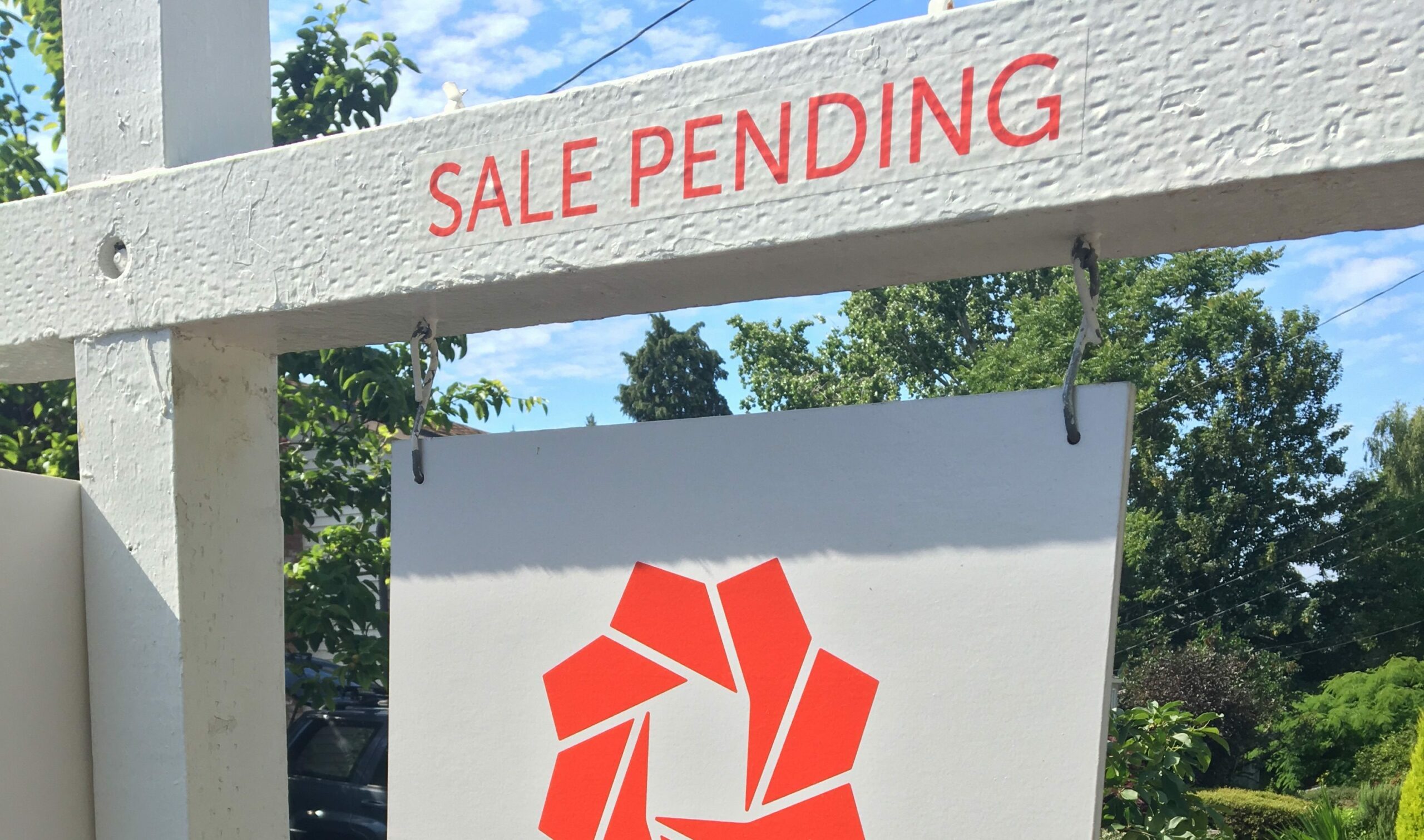There are so many milestones in the home-selling process that it’s easy to overlook perhaps one of the most critical steps – getting an appraisal to come back at or above the sales price. Let’s talk about when and how it works, and what you need to do if the appraisal comes back lower than the sales price.
When you’re selling your home, one of the best things you can do is to hire a licensed real estate broker to help you prepare and list your home. As I tell all of my clients, the best sales strategy is to price the home correctly. This doesn’t mean selling it for a price that has no basis other than your gut instincts or what you want to see it sell for, but instead having an in-depth discussion about what gives the home its value, what decreases its value, and determining the pros and cons of a certain sales price. Pricing correctly makes it much more likely that your home garners a lot of attention in the first few days on the market, resulting in one or more offers at or over the asking price, and getting under contract as quickly as possible.
Establishing an accurate sales price is part art and part science, but it is absolutely critical for an efficient, effective and profitable sales transaction.

Here’s a quick overview of the sales process prior to the inspection contingency being lifted:
- Sign a listing contract with your real estate broker
- Research, discuss, and select a sales price
- Prepare your home for market: make updates, declutter, stage the home, have professional pictures taken
- Go Live to the market, schedule open houses, navigate showings
- Receive and review offers
- Select the best offer, based not only on price, but also the other terms: reputation/quality of lending institution, days to closing, length of inspection period, size and strength of earnest money & downpayment, any other unique terms and conditions
- Review the buyer’s repair addendum and negotiate new terms around repairs, credits and (potentially) a new sales price
“So everything is done, and now we just wait until we sign papers and the transaction closes, right?” The answer is, “Not quite yet.”
At this point, once the inspection contingency has been lifted, a lot of the work IS done for a transaction between the parties, but then the lending institution for the buyer will order the appraisal, to establish a value for the home, which helps ensure that the sales price for the home is equal to or less than the value of the home. The reason for this is fairly obvious – if the buyer stops making payments and the bank needs to foreclose on the loan, the bank itself will have sufficient collateral upon resale to cover the defaulted loan.
The appraisal is a step that often gets overlooked because the sales timeline is filled at the front-end with so many details and milestones, that it’s easy to forget a lot of the major moments occur after the inspection contingency has been lifted and when the parties are full-steam ahead on closing the transaction (especially if you’re the seller).
Getting back to the focus of this article: a big hitch in the sales process occurs when the appraised value comes back at LESS THAN the agreed sales price. What happens then? Well, the sale can either fail because the buyer can’t get a loan based on the current value of the home, the buyer can bring more money to the table to make up the difference, or your listing agent can challenge the appraisal on various grounds and make an appeal to have it adjusted to more accurately reflect its true value – which is ideally at or above the sales price.
I’ve successfully challenged a low appraisal for one of my listings, and was able to get the appraisal adjusted upwards in value to help save the transaction. These are the steps I took, and how I did it:
- Find out the specific process, steps and requirement that the lender uses to challenge an appraisal – also called “reconsidering of value” or “appraisal rebuttal” – and follow those instructions and forms from the lender to a “T”. Don’t let the hard work of the reconsideration request go to waste because you didn’t follow their instructions correctly.
- Remember that appraisers and real estate brokers operate in slightly different worlds. Appraisers are limited to answering questions, providing objective information, and generally remaining fairly conservative in their valuation. Real estate brokers tend to be optimistic, creative and flexible in their approach to value, and operate in real-time with insights into the current market and how buyers are reacting to pricing of various features and home types and conditions. Somewhere between these two worlds is usually where the value of the home is found.
-
Stick to the facts, and don’t make it personal. Just find all of the objective information that’s either missing or incorrect about the home, and point that out. Believe it or not, appraisers can miss major aspects of the home, or make small errors that have an outsized impact on the final value. But not being respectful and making it personal is a sure-fire way to lose your appeal.
-
Find comparable sales that the appraiser might not have taken into account, and explain why they are better comps than the ones they included. (But don’t offer more than 3-4 alternatives.)
-
Provide real-time market feedback: point out features about the house that made the house particularly attractive from prospective buyers. The appraiser isn’t privy to these insights which can be helpful in assigning value where they might not have given much value (or assigning greater value than they already did).
The request for reconsideration usually takes a day or two for the appraisal management company to review, and is either rejected outright or sent back to the appraiser to consider making changes. The best possible outcome is for the appraiser to adjust the valuation to a point that is at or above the sales price. Once that happens, the lender’s requirements for valuation are met and the underwriting process can continue on through to closing day. This results in happy buyers and sellers!
Being aware of the market values for your home, collecting relevant information from prospective purchasers, and being a proactive advocate for your interests are some of the most important values that a professional real estate broker possesses. Successfully challenging an appraisal is but one way we bring value to our clients, and how you can sell your home in an efficient, effective and profitable manner.
Do you have more questions about how this works, or what the sales process might look like for you? Give me a call and let’s chat!
—
ANDY MEEKS
Living Room Realty
Licensed Oregon Broker | Earth Advantage REALTOR®
andy@livingroomre.com | 971.400.0195 | PDX
My Zillow Reviews
Your referrals are at the heart of my business,
and always greatly appreciated. Thank you.





 About Us: Over the course of their professional partnership,
About Us: Over the course of their professional partnership, 
